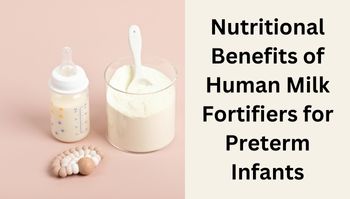Pregnancy is an incredible journey during which a fetus grows and develops dynamically. The second trimester is vital for the baby’s development, from week 13 to week 26. During this period, most aspects regarding the baby’s health and growth commence with the mother’s nutrition. It is important for mothers who are expectant to comprehend the importance of nutrition within this trimester so that they can make informed choices for the benefit of both themselves as well as their infants.
Notable Developments in the Second Trimester
The second trimester explodes with fetal development (weeks 13-26). Here's a glimpse:
- Organs Take Charge: Once simple buds, organs like the heart and lungs become intricate, demanding a diverse range of vitamins and minerals from mom's diet.
- Building Strong Bones: The soft skeleton starts hardening with calcium. Mom's intake of this mineral is vital for healthy bone development.
- A World of Senses: Hearing and sight emerge, requiring essential nutrients like folic acid for proper formation.
- Growth Spurts: Rapid baby growth translates to increased weight gain. A balanced diet with ample protein and carbohydrates fuels this crucial phase.
Necessary Nutrients for the Second Trimester
A diet that is both balanced and rich in nutrients during the second trimester is crucial in fostering the fetus's growth and aids in the management of common pregnancy-related symptoms. The following are essential nutrients and their roles:
Protein: Critical for the development of fetal tissues, such as the brain, and contributes to the production of amniotic fluid. Sources encompass lean meats, poultry, fish, eggs, beans, tofu, and dairy products.
Calcium: Necessary for the growth of strong bones and teeth. Pregnant individuals should strive to intake around 1,000 mg of calcium daily, available in dairy products, leafy greens, and fortified foods.
Iron: Aids in the rise of maternal blood volume and averts anemia, a frequent occurrence during pregnancy. Prime sources include lean meats, spinach, and iron-fortified cereals.
Folic Acid: Essential in the prevention of neural tube defects and supports the development of the brain and spinal cord. Found in leafy green vegetables, citrus fruits, beans, and fortified grains.
Omega-3 Fatty Acids: Significant for brain development and vision. Sources include fatty fish such as salmon, flaxseeds, and walnuts.
Vitamin D: Facilitates the absorption of calcium and promotes bone health. Sunlight exposure, fortified dairy products, and fatty fish serve as good sources.
Fiber: Contributes to digestive health and prevents constipation, which is common in pregnancy. Available in whole grains, fruits, vegetables, and legumes.
Tips for Keeping a Healthy Diet
Keeping a balanced diet during the second trimester is all about focusing on nutrient-packed foods while dealing with the common discomforts of pregnancy. Here are some practical tips to help you out:
1. Eat Regular, Balanced Meals: Instead of having three big meals, try having smaller, more frequent meals. This will help you maintain your energy levels and reduce any nausea you may be experiencing.
2. Stay Hydrated: Make sure you drink plenty of water throughout the day. It's important for supporting increased blood volume and the production of amniotic fluid.
3. Take Prenatal Vitamins: Prenatal vitamins are a great way to fill in any nutritional gaps and make sure you're getting all the essential nutrients like folic acid, iron, and calcium.
4. Keep an Eye on Weight Gain: Healthy weight gain is a good sign of your baby's growth. Make sure to consult with your healthcare provider to keep track of your weight gain and manage it appropriately.
5. Cut Down on Processed Foods: Try to limit your intake of processed foods that are high in sugar, unhealthy fats, and additives. Instead, focus on whole foods that provide the important nutrients you and your baby need.
6. Listen to Your Body: Pregnancy often comes with cravings and aversions. It's important to listen to your body and give it what it needs while still making sure you're getting a good variety of nutrients.
The second trimester is a crucial time for your baby's development, and what you eat plays a big role in supporting that growth. By focusing on a balanced diet full of nutrients, you're giving your baby the best possible environment to thrive in. It's always a good idea to talk to your healthcare provider or a nutritionist to get personalized advice and make sure you're making the best dietary choices for you and your baby.
Remember, by focusing on the right nutrients and maintaining a balanced diet, you're setting the stage for a healthy future for both you and your little one. Every bite you take is a step closer to bringing new life into this world.







